Display videos
Yes, I'd like to see videos dispalyed.
We look at each other slightly disconcerted, wait ten minutes, and go to our rooms with this ‘preparation’. It is the only meeting in my career that took place without the coach and spoken words.
When we go onto the pitch at the Ulrich Haberland Stadium in the afternoon with a below capacity 14,000 crowd, the team knows exactly that it's not just about the job of our coach but also our own crisis. The press were very tough with us in the previous week and the pressure is really evident. Eight minutes into the game, our left back Anders Giske opens the scoring. We are able to hold on to that surprise lead to the break. When a low cross from Helmut Winklhofer is headed home by midfielder Jürgen Röber to make it 2-0 then our players up front begin to play decent football and to believe in themselves. Herbert Waas seals it on 76 minutes at 3-0. Not only is Dettmar Cramer relieved but also the whole stadium. And stadium announcer Günter Maczkowiak plays the song 'Hurra, wir leben noch' (Hooray, we are still alive).
At the end of the season we are only thirteenth in the table and the contract with Dettmar Cramer is not extended after a disappointing season for everybody involved. But that match against FC Bayern was the highlight of the 1984/85 campaign.
Related News
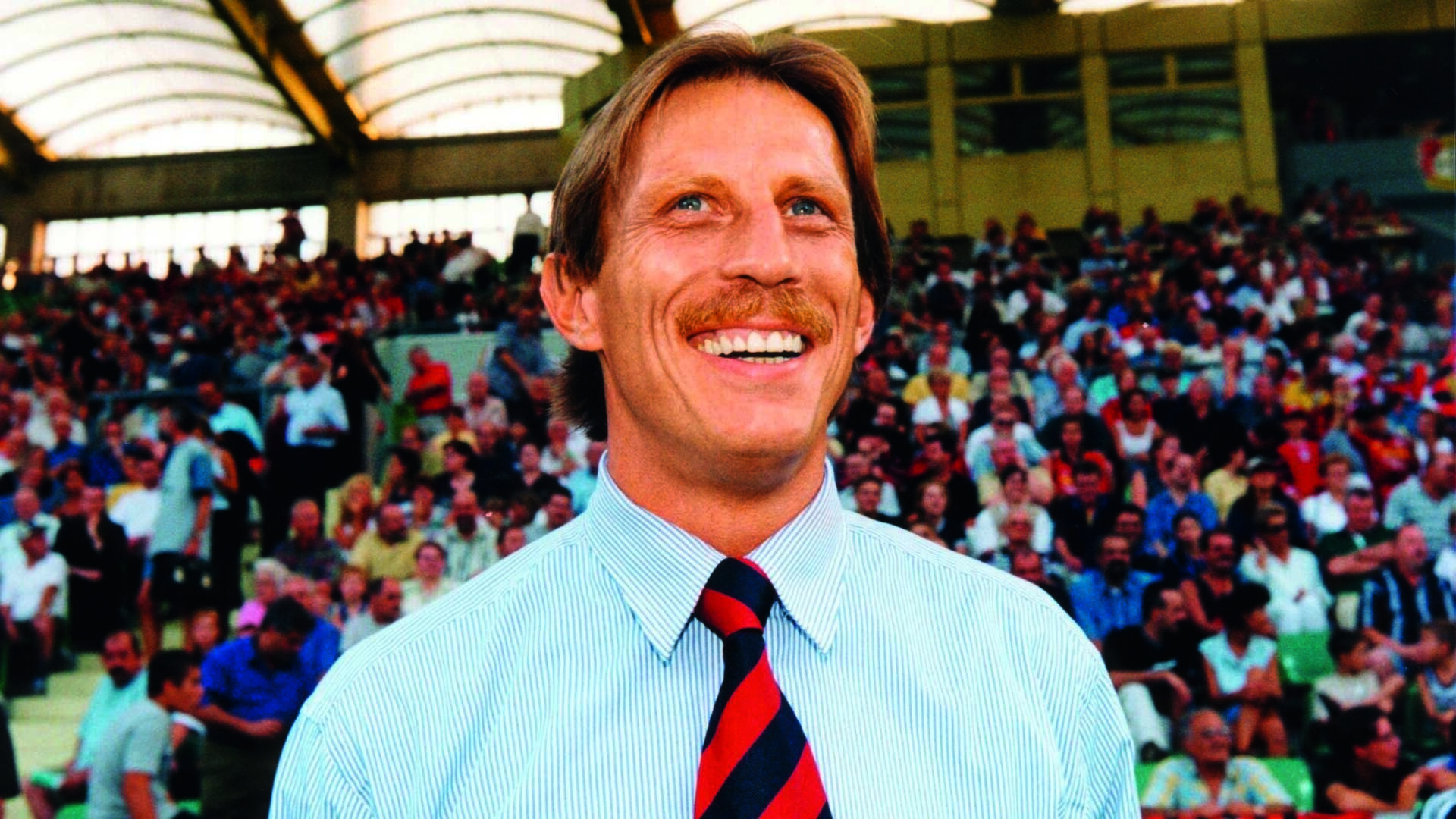
Legend: Christoph Daum - The man who taught us to want
Christoph Daum was born on 24 October 1953 in Zwickau. As a child, he moved to West Germany with his mother and grew up in Duisburg. He developed a great enthusiasm for football at an early age, even though it soon became clear that his future lay less on the pitch than on the sidelines. Even at a young age, his passion for analysing, explaining and improving things became apparent.
Show more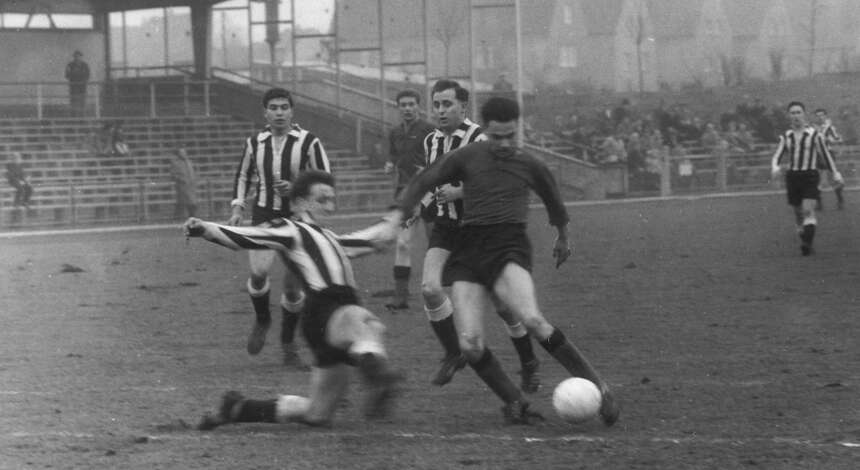
From the archives: 65 years ago - Another victory at last
When the Bayer 04 players celebrated Christmas in 1960, they spent the winter in second place in the Oberliga West 2 on 20 points - but already five points behind leaders Schwarz-Weiß Essen. However, coach Erich Garske's team are struggling to get back on track in the new year. A goalless draw against Bonner FV at home at the Ulrich Haberland Stadium was followed by a 2-1 away defeat in Erkenschwick. The following home game also yielded just one point. As a result, the team's promotion ambitions dwindled to a minimum, as the gap to the coveted spot has now grown to a challenging ten points.
Show more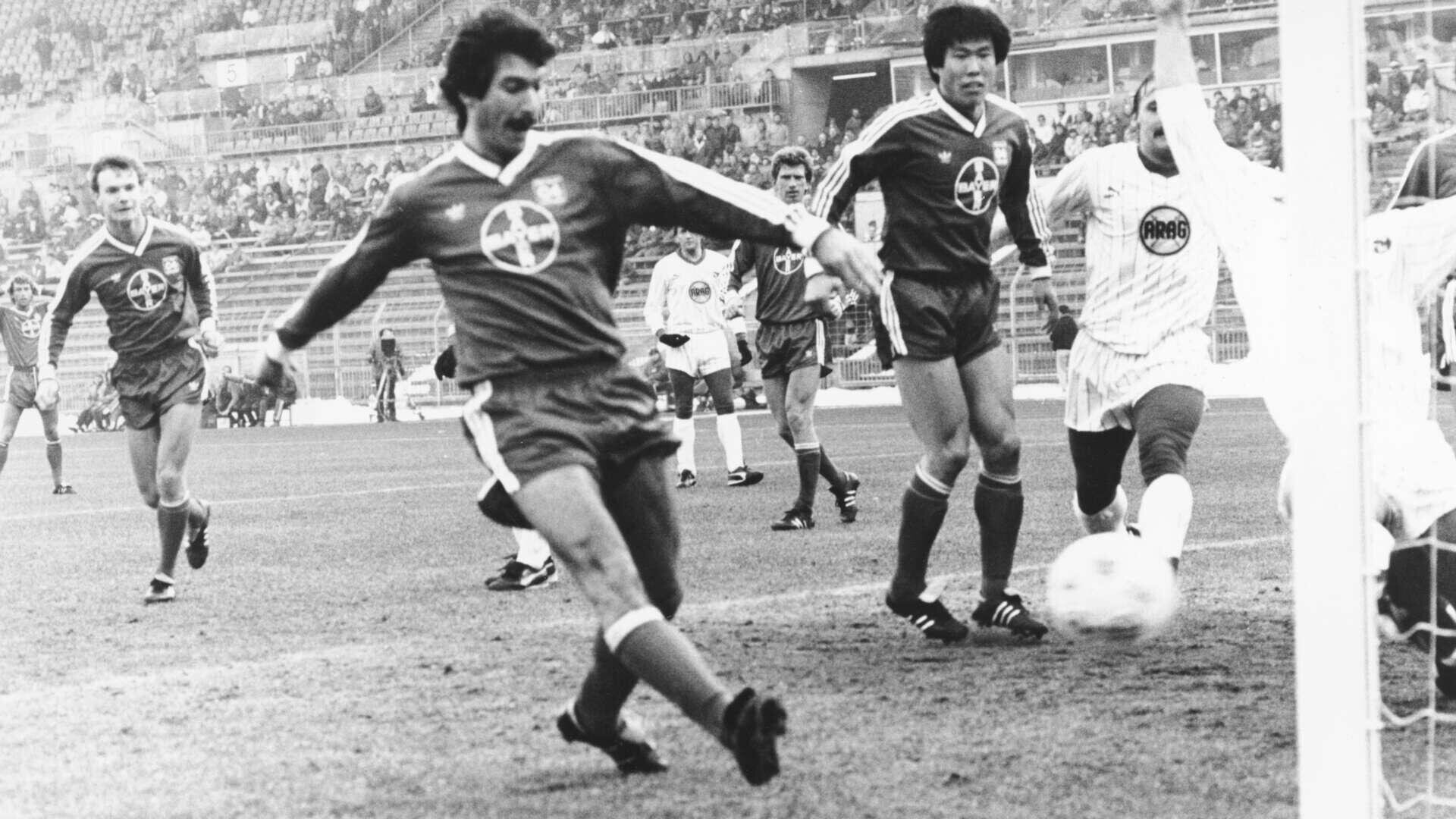
Goals of the month: From Waas to Tapsoba
In this video you can see impressive and important goals in Bayer 04 history from the month of February. It's not always about the beauty of the goals, but also a reminder of special games and players.
Show more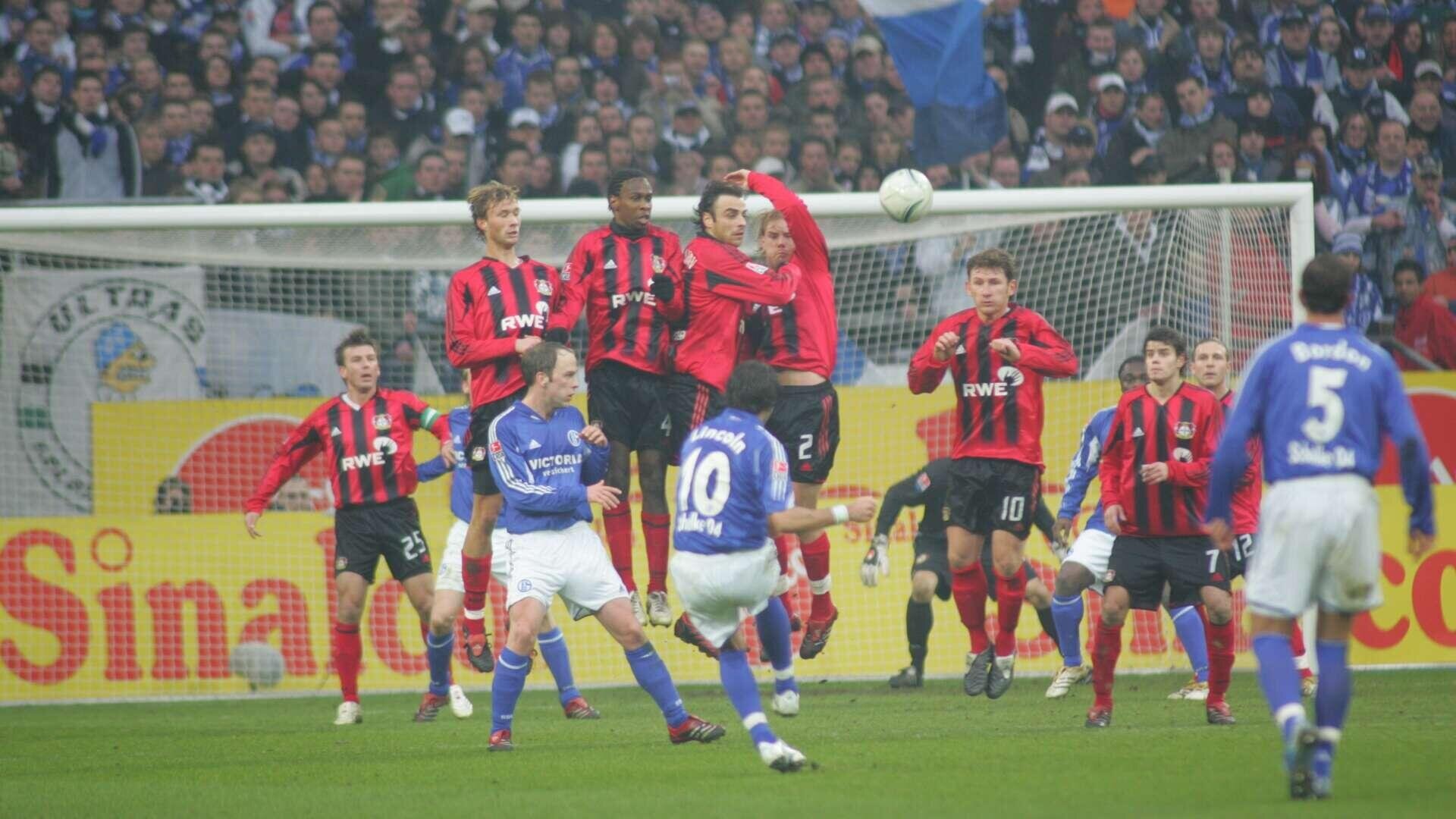
Match of the month: 20 years ago - A game of goals galore
It is 11 February 2006 and Schalke 04 and the Werkself kick off at 3.30 p.m. in a match that ends up being historic - at least from a Bayer 04 perspective.
Show more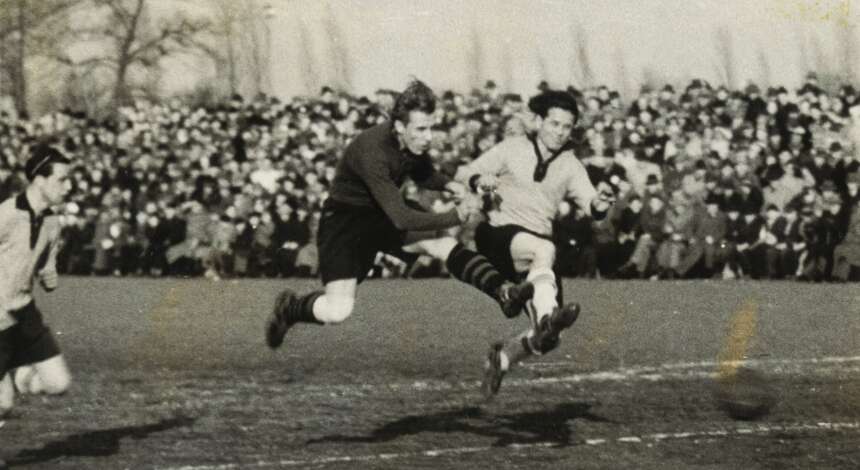
History: 75 years ago - The 1950/51 season (February)
As league leaders, the Werkself welcomed the relegation-threatened team from Rhenania Würselen. On 4 February 1951, 5,000 spectators line the touchlines despite the Sunday carnival parades. And they see a home team that is superior on the pitch. Without Theo Kirchberg, who was ill, and Emil Becks, who was suspended, the hosts attacked the opposing goal from the start. Battling against a strong wind in the first half, Bayer 04 created chance after chance, but were repeatedly thwarted by the Würselen goalkeeper. With the score at 0-0 at half-time, Karl Heinz Spikofski tried his luck on 55 minutes and hammered the ball into the opposition net from 20 metres out. Rhenania can no longer counterattack. The siege of the Würselen penalty area continued right to the end, but the game ended in a narrow 1-0 win.
Show more